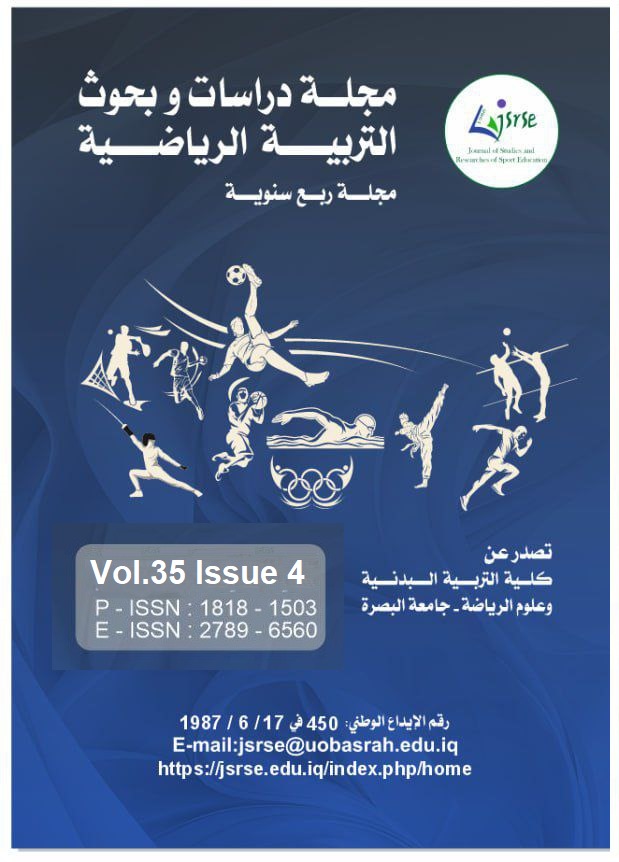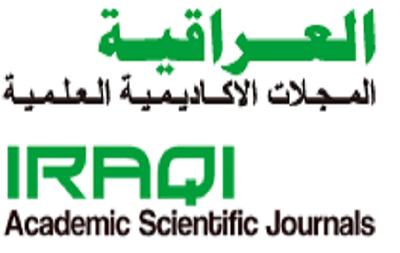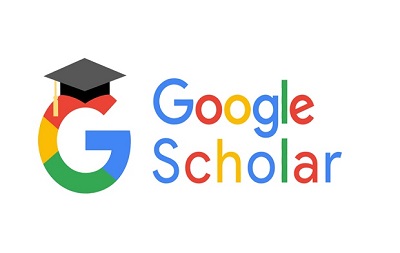Challenges Facing Talented Athletes from the Perspective of Coaches and Administrators of Specialized Teams in Sports Talent Care Departments in Baghdad
Main Article Content
Abstract
This research aimed to identify the level of challenges and obstacles facing talented athletes in specialized sports talent development schools in Baghdad, from the perspective of coaches and administrators in these schools, in order to understand these challenges and attempt to find appropriate solutions. The researcher used the descriptive approach with a survey method and case study, as it was suitable for the nature of the research problem. The main research sample consisted of 206 coaches and administrators. A scale was developed to identify the challenges facing talented athletes, comprising 62 items distributed across four domains. The most important findings of the research indicated that talented athletes face a high degree of challenges. The researcher recommended assisting talented athletes to overcome the life pressures they experience and providing them with psychological support. Accordingly, the researcher recommended cooperation between the Ministry of Education and the Ministry of Youth and Sports to support talented athletes by providing the material and moral resources that help them develop and refine their athletic talent.
Article Details

This work is licensed under a Creative Commons Attribution-NonCommercial 4.0 International License.
References
Abdel Rahman, S. S., & Safaa, G. A. (2004). The Mentally Gifted: Their Characteristics, Discovery, Upbringing, and Problems (pp. 61–62). Zahraa Al-Sharq Library.
Abdelbaki, A. (2016). The Role of the Algerian Family in Caring for Gifted Children (Academically Outstanding Children as a Model) [PhD Thesis]. Mohamed Lamine Debaghine University Setif.
Ahmed, M. M., & Asal, F. H. (2024). The effect of competitive exercises using a pressing style of play on developing the speed of complex skill performance in young soccer players. Anbar University Journal of Physical and Sports Sciences, 15(29), 180–188. https://doi.org/10.37655/uaspesj.2024.151477.1164
Ahmed, S. D. (2005). The role of print media in nurturing talent and the talented. Regional Scientific Conference on Talent: Nurturing Talent... Education for the Future, 600.
Al-Ahmadi, M. A. (2005). Problems and Guidance Needs of Gifted and Talented Students, Regional Scientific Conference on Talent and Talent Care... Education for the Future. Two Parts, Makkah Region, Jeddah, Hilton Hotel, 914–964.
Al-Araydah, E. S. N. (2015). Obstacles Facing Gifted and Talented Students in the Qassim Region from the Teachers’ Perspective and Proposed Solutions to Overcome Them. Journal of Special Education and Rehabilitation, 3(9), 79–136. https://doi.org/10.21608/sero.2015.92121
Al-Attas, S. H. (2003). Developing methods for discovering and nurturing talented individuals in the Kingdom of Saudi Arabia in light of the experience of the United States of America [Master’s thesis]. Umm Al-Qura University.
Al-Ghamdi, H. A. (2005). Obstacles Facing Gifted Students in Basic Education in the Kingdom of Saudi Arabia, a study presented at the Regional Scientific Conference on Giftedness. Two Parts, Jeddah, Hilton Hotel, 881–913.
Ali, S. A. A. J. (2004). The Importance and Role of Guidance and Counseling in Developing the Creative Abilities of the Gifted and Talented. The Sixth Arab Scientific Conference for the Care of the Gifted and Talented, 369–389.
Al-Khamisi, A. H. (2014). Raising and Nurturing the Gifted in the Family, School and Society (p. 54). Dar Al-Qalam Al-Arabi, Aleppo, Dar Al-Rifai Publishing.
Al-Saadi, R. A. A. R. (2009). The role of the school in developing talent among students from the perspective of the directors of government schools in Jenin Governorate. The Sixth Arab Scientific Conference for the Care of the Gifted and Talented, 2, 607-644.
al-Zu’bi, A. M. (2009). Talent, Excellence, and Creativity: Reasons for Discovering, Guiding, and Nurturing Them (p. 19). Damascus, Dar al-Fikr.
David, H., Gil, M., & Raviv, I. (2009). Sibling Relationships among Eilat Families with at Least One Gifted Child. Gifted and Talented International, 24(2), 71–88. https://doi.org/10.1080/15332276.2009.11673531
Hanadi, M. O. S. Q. (2009). The Role of the Family in Nurturing Gifted Children, The Sixth Arab Scientific Conference on the Care of the Gifted (pp. 179–200).
Jamal, A. A. Z., & Suhaila, M. B. (2010). Psychological Adjustment and its Relationship to Problem-Solving Skills among Gifted and Talented Students. Journal of Educational and Psychological Sciences, 11(2), 39–63.
Khalil, M. M. (2007). Abilities and Characteristics of the Gifted: A Field Study [Published Master’s Thesis, 5th Edition]. Alexandria Center for Books.
Musa, N. M. (2010). The Gifted Child (Talent and Care in the Family Environment) (pp. 135–139). Al-Warraq Foundation for Publishing and Distribution.
Sadowski. (2007). The pressures of authority and their negative impact on a sample of gifted individuals, Tariq Abdul Raouf Amer (pp. 130–131). Studies in Excellence, Giftedness, Creativity and Innovation.
Saida Attar. (2012). Problems of Gifted Students in Algerian Schools. Journal of the Researcher in Humanities and Social Sciences, 4(8), 169–200.
Shihab, H. A. (2024). Studying the obstacles to implementing the physical education lesson according to the opinion of the critical friend and the principals of intermediate schools in Fallujah District. Journal of Studies and Researches of Sport Education, 34(4), 374–385. https://doi.org/https://doi.org/10.55998/jsrse.v34i4.810





 IASJ
IASJ CC-BY-4.0
CC-BY-4.0 turnitin
turnitin ISSN
ISSN DOAJ
DOAJ Crossref
Crossref GoogleScholar
GoogleScholar Orcid
Orcid